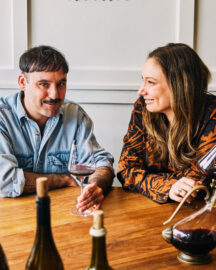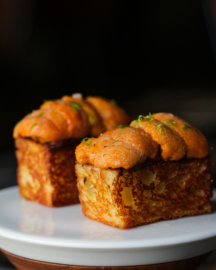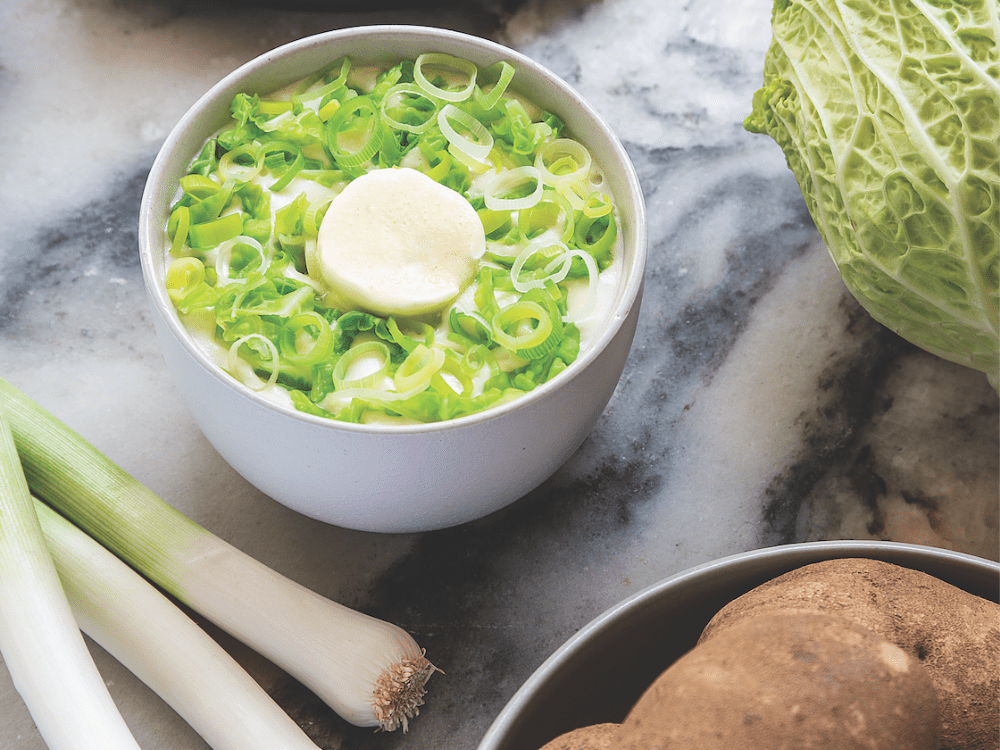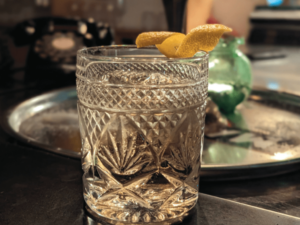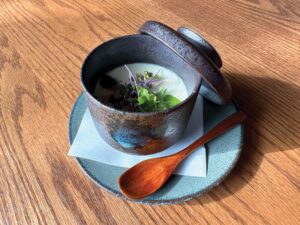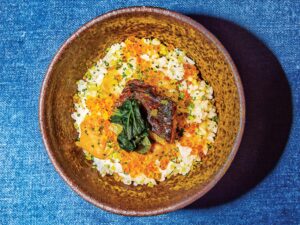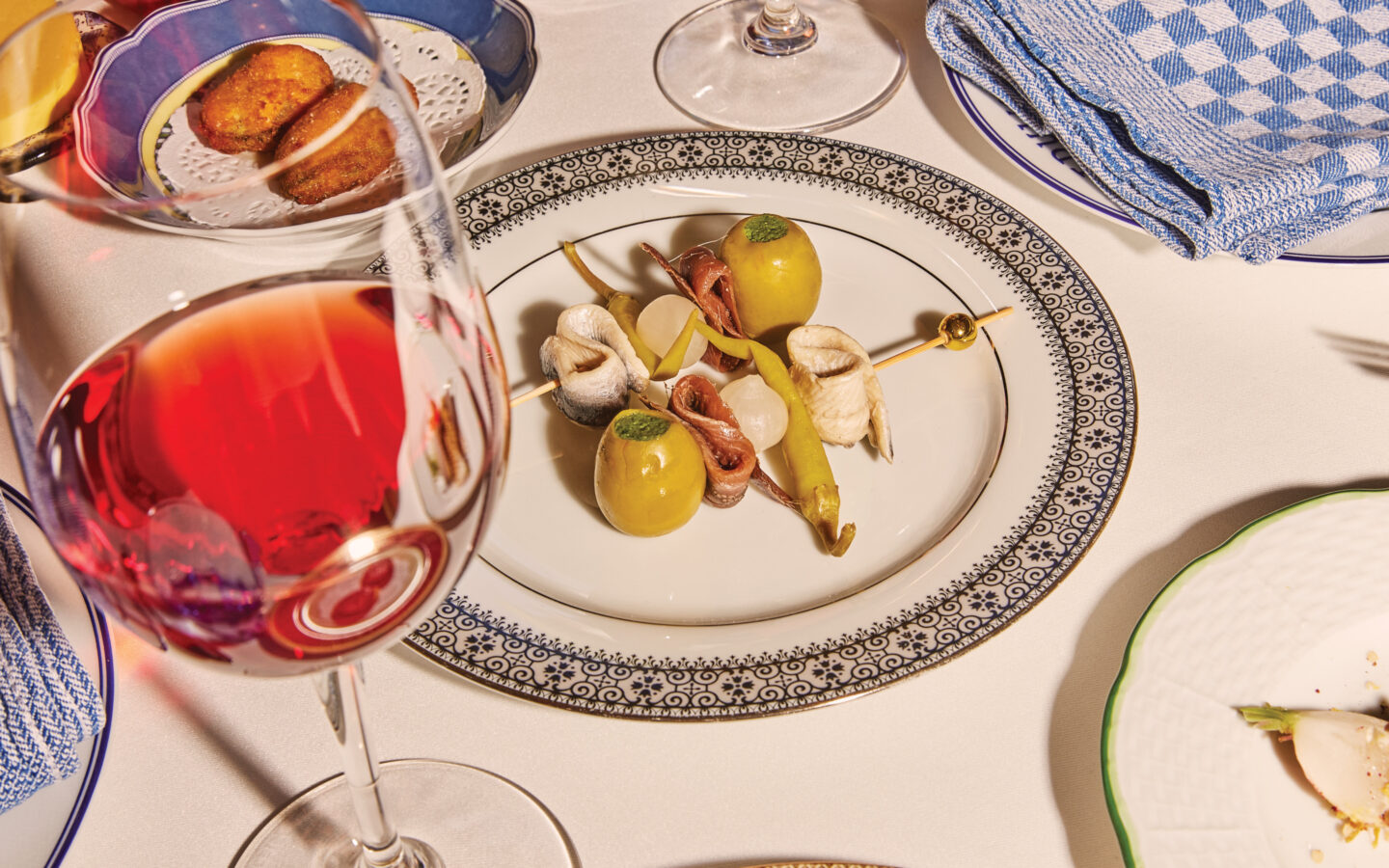Chef Douglas King's Colcannon
Meal-prepping for my young daughter, Roísín, has made me nostalgic for my mother’s kitchen back in Bantry, West Cork.
Her excellent colcannon was a staple at the family table—usually served with pork sausages and a side plate of soft butter. It’s a simple dish that makes excellent use of fall ingredients. My mother often used kale from her garden, but I prefer the flavour and texture of cabbage. So, when I gave Roísín her first colcannon experience at 16 months, I made it just like this. Try it with roast chicken or baked ham or holiday turkey. —Douglas King – Bar Von Der Fels, Calgary
INGREDIENTS
- 500 g (1 lb) russet or other floury potatoes, scrubbed
- salt
- 100 ml (1⁄3 cup) whole milk
- 1 stick (1⁄2 cup) Kerrygold or other top-quality butter
- 1 leek, white and pale green part only, minced
- 1⁄2 head of Napa cabbage, cored and shredded
- pepper
TO FINISH
- 50 ml (1⁄4 cup) buttermilk
- butter curls
- Maldon or other flaky sea salt
METHOD
Transfer the (unpeeled) potatoes to a large pot, cover with cold water and bring to a boil. Salt generously, reduce heat to medium-low and simmer until just tender, about 20 minutes. Drain, pass through a ricer into a fresh pot and set aside.
Combine milk, butter and leek in a medium saucepan and bring to a simmer on medium-low. Reduce heat to low and continue simmering until leeks soften, about 15 minutes.
Blanch the cabbage in a large pot of vigorously boiling salted water for one minute. Drain, refresh under cold water and drain again.
Beat the potatoes with a wooden spoon over low heat until smooth. Add the warm milk mixture and stir until incorporated. Add the cabbage and beat the mixture until it is light and fluffy.
Season with salt and pepper and add buttermilk to taste. Scoop the colcannon into four warm bowls and finish with butter curls and sea salt.
Serves 4 as a side dish.
📷 Ryan Blades
Share: Facebook, X (Formerly Twitter)



